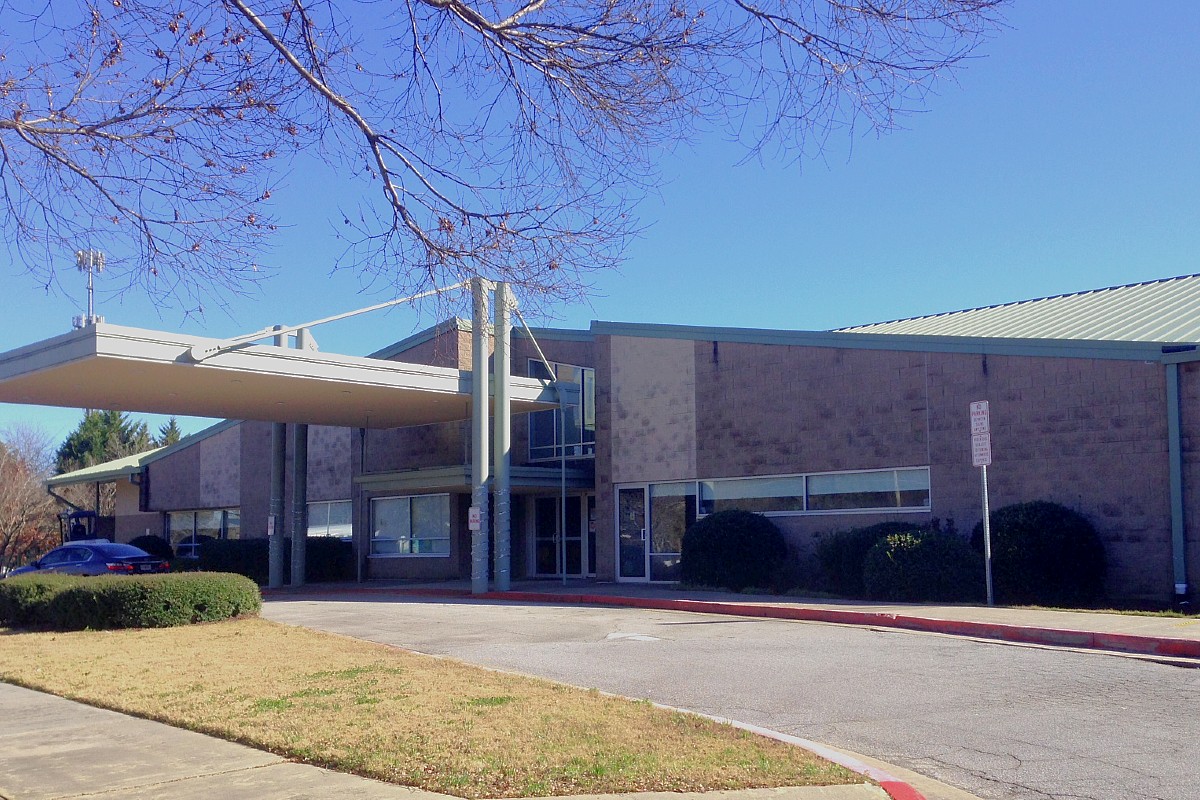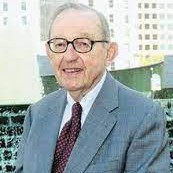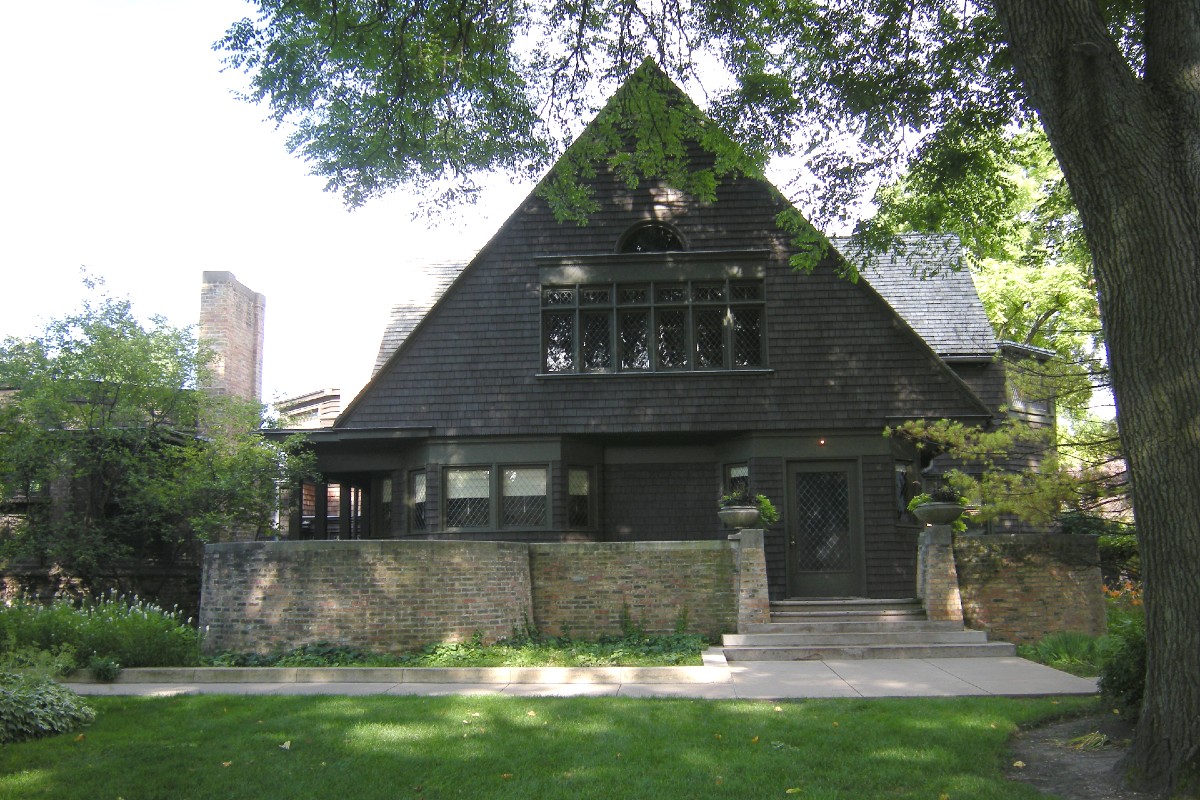GwinnettForum | Number 21.03 | Jan. 11, 2022
THE A. WORLEY BROWN Boys and Girls Club of Norcross was built in 2000. One of the key persons behind its founding was Bradley Currey Jr. of what was then Rock-Tenn Corporation of Norcross. Mr. Currey died this week. To learn more about this key individual, see EEB’s Perspective for more, and his obituary, both below.
TODAY’S FOCUS: Gwinnett to reimpose mask requirement in county facilities
EEB PERSPECTIVE: Gwinnett loses one of its key industrial leaders in Brad Currey
SPOTLIGHT: The Gwinnett Stripers
FEEDBACK: Forum should consider adding affordable housing to Objectives
UPCOMING: Second waste hauler suspends bulky and yard waste pickup
NOTABLE: Gwinnett County Transit wins Performance Award
OBITUARIES: Bradley Norton Currey Jr.
RECOMMENDED: There, There by Tommy Orange
GEORGIA TIDBIT: John D. Gray was major early industrialist in Southeast
MYSTERY PHOTO: Dark photo had a distinctive history; What is it?
CALENDAR: Groundbreaking of new Snellville Library is today (January 11) at 3 p.m.
Gwinnett to reimpose mask requirement in county facilities
By Deborah Tuff
LAWRENCEVILLE, Ga. | Gwinnett County Board of Commissioners Chairwoman Nicole Hendrickson signed a Local Emergency Order requiring face masks or coverings to be worn in all facilities that are owned or leased by the county.
More than 18,566 confirmed COVID-19 cases were reported to the Georgia Department of Health from Wednesday to Thursday of last week. In Gwinnett County, the surge of positive cases has not only affected residents and private businesses — it has also impacted county government.
Hendrickson says: “As an employer, Gwinnett County has experienced a significant amount of employee absenteeism because of the spread of COVID-19 and its variants. Because we want to be proactive and keep essential services running without interruption to our residents, business owners and customers, we will follow guidance from the Centers for Disease Control and Prevention and the Georgia Department of Public Health and take measures to limit the spread of COVID-19 for the safety of those who visit our facilities and work in them as well.”
If an individual cannot afford a face mask, they will be provided one.
These are exceptions to the new policy:
- Individuals who have difficulty donning or removing a face mask without help;
- Individuals who have a bona fide religious reason for not wearing a face covering; and
- Individuals who have a bona fide medical condition that will prevent them from wearing a mask.
The order does not apply to: privately owned businesses; Gwinnett court facilities; Gwinnett County Board of Education: or city government.
County Administrator Glenn Stephens acknowledges the impact of the recent surge of COVID-19 cases on the county’s workforce and announced that Gwinnett County Government’s internal policy would be updated to include a mask requirement for employees.
He says: “It’s imperative that we do everything in our power to keep our employees healthy. They are the people who keep the water flowing, respond to emergencies, ensure our roads are safe and provide other services essential to our community. Chairwoman Hendrickson’s local emergency order and the county policy update to require masks provide our workforce with another layer of protection as they serve our residents, businesses and visitors.”
The Local Emergency Order is effective from January 10 until January 26. At that time, Chairwoman Hendrickson may reevaluate this order based on recommendations by the Communicable Disease Center and the state Department of Public Health.
- Have a comment? Send to: elliott@brack.net
Gwinnett loses a key industrial leader in Brad Currey
By Elliott Brack
Editor and Publisher, GwinnettForum
JAN. 11, 2022 | Georgia lost a mighty good man when Bradley Currey Jr. died last week in Atlanta at the age of 91. For 24 years, he was associated with Rock-Tenn Company, which had its headquarters in Norcross. The company was one of the leaders in the recycled paper business, turning used paperboard into printed cartons for the beverage industry, among its many users.
![]() During his association with Rock-Tenn (the company known as West-Rock today), the firm had tremendous growth and was a moving force in the recycled paper business. Currey joined Rock-Tenn in 1976, and with Worley Brown, led the company until Brown became disabled in the 1980s. From 1976 to 2000, when Currey retired, the company grew from $12 million in sales to $1.3 billion. Rock-Tenn was a Fortune 500 company and was at one time one of five companies in Gwinnett listed on the New York Stock Exchange. The firm changed its name to West-Rock in 2015, when it merged with MeadWestvaco. It moved its headquarters from Norcross to Sandy Springs in 2018, though it still has other offices in Gwinnett now.
During his association with Rock-Tenn (the company known as West-Rock today), the firm had tremendous growth and was a moving force in the recycled paper business. Currey joined Rock-Tenn in 1976, and with Worley Brown, led the company until Brown became disabled in the 1980s. From 1976 to 2000, when Currey retired, the company grew from $12 million in sales to $1.3 billion. Rock-Tenn was a Fortune 500 company and was at one time one of five companies in Gwinnett listed on the New York Stock Exchange. The firm changed its name to West-Rock in 2015, when it merged with MeadWestvaco. It moved its headquarters from Norcross to Sandy Springs in 2018, though it still has other offices in Gwinnett now.
To know Brad Currey was to know one of the finest, first-rate leaders in Atlanta. He served in leadership capacities on many of the major boards in Atlanta, from the Atlanta Chamber and United Way, to the Atlanta Symphony and Woodruff Arts Center, to the Federal Reserve Bank and directorships of several private companies. After retirement, he was a central force in the finding agreement among the parties in the continuing “water wars.” He was appointed by three governors to a water basin leadership team which came up with solutions acceptable to all parties.
But it was Brad Currey’s basic style and manner that most impressed people. Ever courteous, and with impeccable Southern manners, Bradley Currey was easy to know and admire, bringing out the best in people.
He was a native of Chattanooga, Tenn. and a 1951 graduate of Princeton University. With the Korean War going on at that time, he joined the Army, served as an enlisted man and then as an armor officer. He declared infantry basic training and infantry leaders’ courses the “best possible antidote to four years at Princeton University.”
With the Rock-Tenn headquarters in Gwinnett, Mr. Currey took a major interest in activities in Gwinnett, with him serving on the Chamber Board of Directors. He was the principal impetus for the formation of the A. Worley Brown Boys and Girls Club in Norcross, the second Boys and Girls Club in the county. The employees of Rock-Tenn contributed $600,000 of the $3.5 million campaign to build the Club. The A. Worley Brown Foundation made a $500,000 contribution. All knew that the man, Bradley Currey, was behind the scene in raising these funds.
Bradley Currey also was part of the effort to build the Robert Fowler YMCA in Peachtree Corners, which opened in 1997. He served as its honorary chairman of fund-raising and was a major contributor.
More than anything, Brad Currey was a man you felt at ease with. He had a calming style, never rushing into matters, making you know that his doors and his mind were always open to you.
Bradley Norton Currey Jr., 1930-2022: may you rest in peace.
- Have a comment? Send to: elliott@brack.net
The Gwinnett Stripers
 The public spiritedness of our sponsors allows us to bring GwinnettForum.com to you at no cost to readers. The Gwinnett Stripers, Triple-A affiliate of the 2021 World Series Champion Atlanta Braves, play at Coolray Field in Lawrenceville, Ga. The Stripers’ 2022 home opener is Tuesday, April 12 vs. Nashville. For 2022 memberships, team merchandise, or more information, visit GoStripers.com. Follow the Stripers on Facebook, Twitter, and Instagram at GoStripers.
The public spiritedness of our sponsors allows us to bring GwinnettForum.com to you at no cost to readers. The Gwinnett Stripers, Triple-A affiliate of the 2021 World Series Champion Atlanta Braves, play at Coolray Field in Lawrenceville, Ga. The Stripers’ 2022 home opener is Tuesday, April 12 vs. Nashville. For 2022 memberships, team merchandise, or more information, visit GoStripers.com. Follow the Stripers on Facebook, Twitter, and Instagram at GoStripers.
- For a list of other sponsors of this forum, click here.
Forum should add affordable housing to objectives
Editor, the Forum:
![]() The annual review by GwinnettForum of Gwinnett County aspirations is noble. However, it might be time to add affordable housing and the dream of home ownership to those goals.
The annual review by GwinnettForum of Gwinnett County aspirations is noble. However, it might be time to add affordable housing and the dream of home ownership to those goals.
Gwinnett has seen a huge increase in multi-family rental housing in the last ten years. There is no question that rental housing plays a role in every community, but it can also be a destructive and parasitic one.
Corporate or REIT-owned housing is parasitic in the sense that it can’t exist without the investment of owner-occupied single-family housing property taxes to build schools, sewers, and local roads. Once single-family communities are established, the timing is right for investor-owned high-density housing to be built to exploit it.
The problem is that investors charge rent that surpasses the monthly mortgage and tax cost of the average single-family home, but the value of the apartment is only about $100,000. Therefore, the taxes they pay make up a fraction of that for the services they consume in school, sewer, fire, police, and roads. This means that each new multi-family project will eventually raise the taxes on single-family homes. Worse, the profits taken by the investors in high rents prevent many tenants from saving for a down payment for a house of their own.
In my opinion, the homestead exemption should be limited to owner-occupied housing. It should not be used to subsidize corporate profits as it is doing today.
Does this mean we should not encourage the construction and availability of low and modest-income housing? Far from it. We absolutely need more three-bedroom/two-bathroom 1/4-acre, $200,000 single-family homes. There is plenty of land to build them on. But the primary developments of this description that we see today is again investor-owned rental housing.
Home ownership is critical because it can be paid off with discipline and therefore homeowners can begin to save for their retirement. That is what the homestead exemption should be limited to, not subsidizing corporate profits.
– Joe Briggs, Suwanee
There is a Historic Preservation Society in Sugar Hill
Editor, the Forum:
In reading your recent article concerning historical societies, I found it to be very informative. However, I did find one error. You state that only Buford, Snellville, and Duluth currently have historical societies. However, the City of Sugar Hill has one also, a Historic Preservation Society. You can see their active society at the link here: https://cityofsugarhill.com/government/boards-commissions/historic-preservation-society/. Officers include Kathryn Baskin, chairman; Stephanie Isaacs, vice chairman; Kim Landers, secretary; and Joann Burel, treasurer.
– Rev. Steven F. A. Sanders, Sugar Hill
Buford Postal Annex also needs love and maintenance
Editor, the Forum:
To your list of Continuing Objectives, where you suggest “Remove chewing gum on sidewalks at entrances of post offices and other governmental buildings,” let me look at it another way. I would suggest adding, “Keep the grass cut and the landscape maintained and for the postal annex in Buford, and fix the parking lot.” The area needs some love and maintenance.
– Tim Sullivan, Buford
Send us your thoughts: We encourage you to send us your letters and thoughts on issues raised in GwinnettForum. Please limit comments to 300 words, and include your hometown. The views of letters are the opinion of the contributor. We reserve the right to edit for clarity and length. Send feedback and letters to: elliott@brack.net.
Second waste hauler suspends bulky and yard waste pickup
![]() Waste Management will temporarily suspend bulky item and yard waste pickup in unincorporated Gwinnett County effective Friday, January 7 because of a surge in COVID-19 infections among its workforce. Waste Management will prioritize trash and recycling services.
Waste Management will temporarily suspend bulky item and yard waste pickup in unincorporated Gwinnett County effective Friday, January 7 because of a surge in COVID-19 infections among its workforce. Waste Management will prioritize trash and recycling services.
This change comes as another waste hauler, Republic Services, earlier announced a similar temporarily suspended bulky waste pick-up because of Covid outbreaks.
Waste Management says that garbage and recycling services will remain the same. “Rest assured, we are working tirelessly to remedy the situation. We appreciate your patience and understanding while we navigate these challenging circumstances.”
Gwinnett County Transit wins Performance Award
The Georgia Transit Association awarded Gwinnett County Transit (GCT) with the Performance Award for excellent service during the COVID-19 pandemic.
The Georgia Transit Association acknowledged GCT’s ability to provide premier service without reduction to its local service for customers. GCT offers seven local routes and five express routes, and operates commuter express bus, local bus and paratransit services. GCT continues to operate five express routes to Atlanta and Decatur and seven local routes.
To limit the spread of COVID-19 and when available, hand sanitizer is placed on buses for passengers to use. GCT also deep cleans its buses and vans daily.
Suwanee cited for 13th straight year for good management
The International City/County Management Association (ICMA) has recognized the City of Suwanee for the 13th consecutive year for its commitment to data-driven government management and reporting with a Certificate of Excellence in Performance Management.
The Certificate of Excellence – the highest certification level – was awarded to just 31 governments across the country. Suwanee was the only jurisdiction in Georgia recognized by ICMA in 2021 for performance management at any level.
- Have a comment? Send to: elliott@brack.net
Bradley Norton Currey Jr.
Longtime Atlanta resident, civic leader, volunteer and businessman Bradley Norton Currey, Jr., died January 6, 2022, at home in Atlanta, Georgia. He was 91.
Throughout his life, Brad loved civic and business work but also activities outside of work, such as playing with children and grandchildren, swimming, hiking, gardening and listening to music. He used to say he was the “luckiest guy that ever lived.” Since the early 1980s, he has spent time with family in the north Georgia mountains, where he walked the woods; read Jack Tales and Pogo to beloved grandchildren, nieces and nephews; built roaring fires in the winter, and in summertime took very long swims. He loved people, eschewed extravagance, cared about community and was generous with his time and resources.
Brad graduated from Princeton University in 1951 with an A.B. degree from the Woodrow Wilson School of Public and International Affairs. He then enlisted in the U.S. Army, serving as an infantry soldier and armor officer during the Korean War. He saw no combat, his service spent going to and teaching in Army Schools. He declared infantry basic training and infantry leaders’ courses in the recently-integrated Army the “best possible antidote to four years at Princeton University.”
He loved his work from boyhood on. His first management job was head busboy in the dining halls at Princeton University. He joined Trust Company of Georgia in late 1953 as a trainee, rising from teller to credit analyst, securities analyst, commercial lender, bond portfolio manager, head of Atlanta commercial banking, head of marketing, controller, strategic planner, chief financial officer and member of the board of directors of the bank and bank holding company – in short, a wonderful and productive banking career. In 1976, he joined Rock-Tenn Company, of which he had been an outside director for nine years. He and A. Worley Brown led the company until Brown became disabled in the late 1980’s, after which Brad served as CEO until retiring in 2000. The company grew from $12 million sales in 1967 to $1.3 billion in 2000. He and Worley Brown built the Rock-Tenn Team and, by his report, “had more fun than the law allowed.” Throughout his remarkable career, he led by example, listened, mentored and cultivated talent. The list of people who are grateful that Brad Currey coached, encouraged, motivated, cajoled and inspired them to give their best may be as long as the Atlanta phone book in 1953, the year he arrived in Atlanta.
From the mid-1950s through 2000, Brad was an active and influential volunteer. He helped lead Community Chest and United Way campaigns, headed the Graduate School of Banking of the South at Louisiana State University from 1971-74; and chaired the Metro Atlanta Chamber of Commerce in 1974, the Atlanta Symphony Orchestra board in 1976-78, and the Woodruff Arts Center board in 1983-85. From 1983-88 he served the Federal Reserve Bank of Atlanta as deputy chairman, then chairman of the board. He was an outside director of Genuine Parts Company and Brown & Brown, Inc., Standard-Coosa-Thatcher Company, Dempster Brothers, Inc., and Enzymatic Deinking Technologies, LLC. He also served on the boards of American Paper Institute, the American Forest and Paper Association and the Paperboard Packaging Council, and was a founder of the Paper Recycling Coalition. In education, he was a trustee of Randolph-Macon Woman’s College, The Lovett School, and Emory University, where he served as chair from 1994-2000.
Immediately following “retirement,” he went to work on water policy in Georgia and the so-called water war between Georgia, Florida and Alabama that started in 1990. Three governors appointed him to committees and councils charged with problem solving related to water supply and conservation. He was particularly proud of contributing to the accomplishments of the ACF (Apalachicola-Chattahoochee-Flint) Stakeholders, a board of 56 people from three states. He recruited key board members, helped raise the money for engineering studies and computer modeling and worked to keep the economic development interests and environmental interests all in the same tent. After five years of hard work, all 56 people on that board agreed that they “could live with” a Sustainable Water Management Plan for the ACF basin. The plan did not stop the litigation which reached the U.S. Supreme Court, but it did show that stakeholders who depend on the river basin from all three states and all four sub-basins could agree on a practical solution to the 26-year-old water war.
As much as he valued his work, Brad was most proud of his big family: his brothers and sisters, his wife and children, nieces, nephews and grandchildren. Beyond work and family, the things that mattered the most to him were the following: First, St. Luke’s Episcopal Church’s acquisition of the full two blocks of land on which the church is located. Second, working with L. L. Gellerstedt, Jr., Ivan Allen, III, George Goodwin and others to roll out the Atlanta Chamber of Commerce slogan “Atlanta, the World’s Next Great City” in the early 1970’s. This same group traveled the world securing foreign consulates and persuading international airlines to initiate service to Atlanta. Third, his work with Mrs. Betty Sands Fuller to keep Robert Shaw as the genius leading the Atlanta Symphony Orchestra and Chorus when he was at risk of being fired. Fourth, establishing the Paper Recycling Coalition as the voice for paper recycling in the USA. And lastly, the Sustainable Water Management Plan completed in 2015 by the ACF Stakeholders which proved that intractable differences can be resolved by stakeholders using facts, science, engineering and the willingness of the participants to recognize that, as Brad would say, “nobody gets everything they want!”
Born June 21, 1930, in Chattanooga, Tenn., he was the second child of Bradley Norton Currey and Louise Sevier Giddings Currey. He is predeceased by his wife Sally McClellan Currey, and survived by their four children Bradley N. Currey III (Julie Farrar), of Clayton, Mo., Anne C. Bucey (David R. Bucey) of Atlanta, L. Louise Currey Wilson (Clifford C. Wilson Jr.) of Princeton, N.J. and Russell M. Currey (Amy Durrell) of Atlanta; ten grandchildren, Nicholas O. Currey, Tonya M. Currey, Sarah M. Bucey, Rachel A. Bucey, Richard C. Bucey, Hannah L. Wilson Rebrovick, Bradley M. Goren-Wilson, Anna B. Currey, Alexander M. Currey and William D. Currey; three brothers, Frederick G. Currey of Dallas, Tex., Hal Sevier Currey of Sullivan’s Island, S.C., and Robert B. Currey of Atlanta and Sparta, Ga.; and many nieces, nephews and cousins. His sisters were Louise Currey Nicholls (1928-1990), Rose Giddings Currey (1934-1935) and Elizabeth Currey Foster (1943-1984).
He and his wife Sally joined St. Luke’s Episcopal Church in 1956, where they sang in the choir. He served several terms on the vestry and as senior warden and was finance chair from 1968-1988. Services will be held at the church on Saturday, February 19, 2022, at 11 a.m. In lieu of flowers or other memorials, gifts to St. Luke’s Endowment Fund, The United Way of Metropolitan Atlanta, The Nature Conservancy, The Atlanta Symphony Orchestra, The James T. Laney Scholars Fund at Emory University, or whatever charitable enterprise he roped you into, would have been appreciated by Mr. Currey.
There, There by Tommy Orange
![]() From Shyla Namiar, Norcross: This book was published in 2018, and was a finalist for the 2019 Pulitzer Prize. Orange, a Cheyenne-Arapaho writer, bases his novel on the experiences of urban Native Americans in chapters narrated through the prism of various points of views, leading to a shocking and unforgettable climax at a powwow. Written in direct and lyrical prose, these are the stories of 12 characters who live in Oakland, Calif., who work at various jobs and undergo the events and tribulations of their existences. The book’s central focus is the holding of a powwow, which a few of the characters plan to rob of cash. A literary novel, the author interweaves the lives, families, and experiences of various Native men and women to depict an authentic and poignant look at how his characters deal with their own personal circumstances against the background of Native identity and history.
From Shyla Namiar, Norcross: This book was published in 2018, and was a finalist for the 2019 Pulitzer Prize. Orange, a Cheyenne-Arapaho writer, bases his novel on the experiences of urban Native Americans in chapters narrated through the prism of various points of views, leading to a shocking and unforgettable climax at a powwow. Written in direct and lyrical prose, these are the stories of 12 characters who live in Oakland, Calif., who work at various jobs and undergo the events and tribulations of their existences. The book’s central focus is the holding of a powwow, which a few of the characters plan to rob of cash. A literary novel, the author interweaves the lives, families, and experiences of various Native men and women to depict an authentic and poignant look at how his characters deal with their own personal circumstances against the background of Native identity and history.
- An invitation: Help! We need new recommendations. What books, restaurants, movies or web sites have you enjoyed recently? Send us your recent selection, along with a short paragraph (150 words) as to why you liked this, plus what you plan to visit or read next. Send to: elliott@brack.net
John D. Gray was major early industrialist in Southeast
John D. Gray was the first major railroad contractor in the South. As John D. Gray and Company, he and his brother William C. Gray constructed railroads in Georgia, Alabama, Mississippi, Louisiana, Florida, North Carolina, and Tennessee. In addition, Gray was a versatile manufacturer for the Confederacy during the Civil War(1861-65).
 John David Gray was born in 1808 in London, England, to Elizabeth Granger and Thomas Gray. The family immigrated to the United States when John was young. Gray married Ann Amelia Gnech, and they had four children. After his wife’s death in 1855, Gray married Mary Jane Moore, and they had five children.
John David Gray was born in 1808 in London, England, to Elizabeth Granger and Thomas Gray. The family immigrated to the United States when John was young. Gray married Ann Amelia Gnech, and they had four children. After his wife’s death in 1855, Gray married Mary Jane Moore, and they had five children.
The Gray brothers began their enterprising careers in the 1820s on the frontier of railroad construction and manufacturing in Columbia, S.C., working in the internal improvements movement. They built sections of a state road and many public buildings in South Carolina, including the Orangeburg courthouse and jail, the jail in Lexington, and the Lunatic Asylum in Columbia. They owned a steamboat line that operated on the canal system in South Carolina in the mid-1830s. Gray’s company received the major contract for the construction of the South Carolina Railroad, the first railroad in the South.
Gray built three of Florida’s four territorial railroads, the Lake Wimico and St. Joseph Railroad, the Iola and St. Joseph Railroad, and the Tallahassee Railroad. He was also a key figure in the boomtown development of St. Joseph. After the town experienced a rapid decline due to an epidemic of yellow fever, Gray removed the railroad tracks and used them on a line in Georgia.
The Gray Company’s efforts in Georgia began when the Monroe Railroad (later the Macon and Western) brought Gray to Macon to manage the company. He became president of the railroad and finished the route to Griffin and most of the grading to Atlanta.
His company constructed the bulk of the Western and Atlantic Railroad from Dalton to Chattanooga, Tenn., including the tunnel through Chetoogeta Mountain, the first extensive railroad tunnel in the Southeast. Gray was the prime mover and contractor of the Atlanta and West Point Railroad and the Augusta and Savannah Railroad. He built sections of the Muscogee Railroad, the North and South Railroad to Rome, the Mobile and Girard, and the Upson County Railroad.
In Alabama, Gray built the Opelika, Alabama, to Columbus, branch of the Montgomery and West Point Railroad and the 70-foot railroad cut, reputed to be one of the deepest railroad cuts in the world at the time, at Brock’s Gap on the South and North Alabama Railroad. Gray constructed the line of the East Tennessee and Georgia Railroad from Cleveland, Tenn., to Chattanooga as well as the tunnel through Missionary Ridge. He also worked on the Mississippi Central Railroad and many others.
(To be continued)
- To view the Georgia Encyclopedia article online, go to https://www.georgiaencyclopedia.org
Dark photo had a distinctive history; What is it?
Today’s Mystery Photo is somewhat dark in shade, but it is distinctive. Tell us what you think this represents. Send your idea to elliott@brack.net, and include your hometown.
 Early on, Jon Davis of Duluth recognized the most recent Mystery Photo: “That is a picture of the Eastlake Country Club main building. I think it was taken from golf No. 8 hole. Not only is it a beautiful course, but it has led the restoration and upgrading of the entire Eastlake Neighborhood under the guidance of Tom Cousins.” The photo came from Stewart Woodard of Lawrenceville.
Early on, Jon Davis of Duluth recognized the most recent Mystery Photo: “That is a picture of the Eastlake Country Club main building. I think it was taken from golf No. 8 hole. Not only is it a beautiful course, but it has led the restoration and upgrading of the entire Eastlake Neighborhood under the guidance of Tom Cousins.” The photo came from Stewart Woodard of Lawrenceville.
Several others also recognized the photo, including Billy Chism, Toccoa; Mike Tennant, Duluth; Ross Lenhart, Stone Mountain; Charles Anderson, Lawrenceville; George Graf, Palmyra, Va.; Philip Parmar, Duluth; Bob Watson,Stone Mountain; and Bo O’Kelley of Peachtree Corners.
Allan Peel of San Antonio gave us a few points on the Club, one of the oldest golf clubs in Metro Atlanta:
- “It was originally part of Atlanta Athletic Club, formed in 1898, but ironically had no golf course. That was corrected in 1904 when it acquired property in the Atlanta suburbs to create a country club and the East Lake Golf Course. It was originally opened in 1908.
- “It is the home of Bobby Jones, a World Golf Hall of Famer, who is considered one of the greatest golfers of all time. He started learning his craft at East Lake during the grand opening in 1908 when he was just six years old.
- “Tiger Woods seemed to have a challenging time with this course, losing in 1998, Woods lost to Hal Sutton; losing In 2000 to Phil Mickelson; losing in 2004 to Retief Goosen; in 2005 to Bart Bryan; but in 2007, Woods finally won the tournament at East Lake and walked away with the $10M grand prizes!”
![]() Groundbreaking at Elizabeth Williams branch of the Gwinnett County Public Library in Snellville will be Tuesday, January 11 at 3 p.m. at 2342 Oak Road.
Groundbreaking at Elizabeth Williams branch of the Gwinnett County Public Library in Snellville will be Tuesday, January 11 at 3 p.m. at 2342 Oak Road.
Surviving the Sandwich Generation will be Tuesday, January 11 at 6:30 p.m. at the Suwanee Library Branch. The Sandwich Generation is positioned in the middle with the complexities of caring for aging parents while supporting their own children. In this workshop series, a panel of experts will provide insight to survive and thrive for those who currently are, or anticipate becoming, a member of the Sandwich Generation.
Project RESET 2.0 Emergency Rental Assistance Program will be held on Wednesday, January 19 at the Norcross Branch Library and Wednesdays, January 12 and 26 at the Centerville Branch Library. Both programs will start at 10 a.m. and finish at 3 p.m. Bring a sandwich and learn. Project RESET 2.0 will provide rental, utility, and internet services relief for eligible renter households who have become housing insecure as a direct result of the impacts of COVID-19.
Author visit: join GCPL and the Friends of the Library as Patti Callahan discusses her book, Once Upon a Wardrobe, which pulls back the curtain on the early life of C.S. Lewis. This will be Thursday, January 13, at 7 p.m. at the Peachtree Corners City Hall. Complimentary wine and a silent auction sponsored by the Friends of the Library. Books will be available for sale and signing at the event.
Historical Marker dedication of a statue of Charles Hale, an African American resident of Gwinnett County, who was lynched in 1911 in Lawrenceville Square, will be Saturday, January 15 at 11 a.m. on the Square. The ceremony will take place virtually, because of pandemic spike.
Day trips in Georgia: Learn more about exciting and educational Georgia day trips for you and your family on Sunday, January 30 at 3 p.m. at the Suwanee Branch Library, 361 Main Street, Suwanee. Author Tom Poland will revisit disappearing traditions in his book, The Last Sunday Drive: Vanishing Traditions in Georgia and the Carolinas. Books will be available for sale and signing at the event.
GwinnettForum is provided to you at no charge every Tuesday and Friday.
Meet our team
- Editor and publisher: Elliott Brack, 770-840-1003
- Managing editor: Betsy Brack
- Roving photographer:Frank Sharp
- Contributing columnist: Jack Bernard
- Contributing columnist: George Wilson
More
- Mailing address: P.O. Box 1365, Norcross, Ga. 30091
- Work with us: If you would like to serve as an underwriter, click here to learn more.
Subscriptions to GwinnettForum are free.
- Click to subscribe.
- Unsubscribe.We hope you’ll keep receiving the great news and information from GwinnettForum, but if you need to unsubscribe, go to this page and unsubscribe in the appropriate box.
© 2021, Gwinnett Forum.com. Gwinnett Forum is an online community commentary for exploring pragmatic and sensible social, political and economic approaches to improve life in Gwinnett County, Ga. USA.














Follow Us